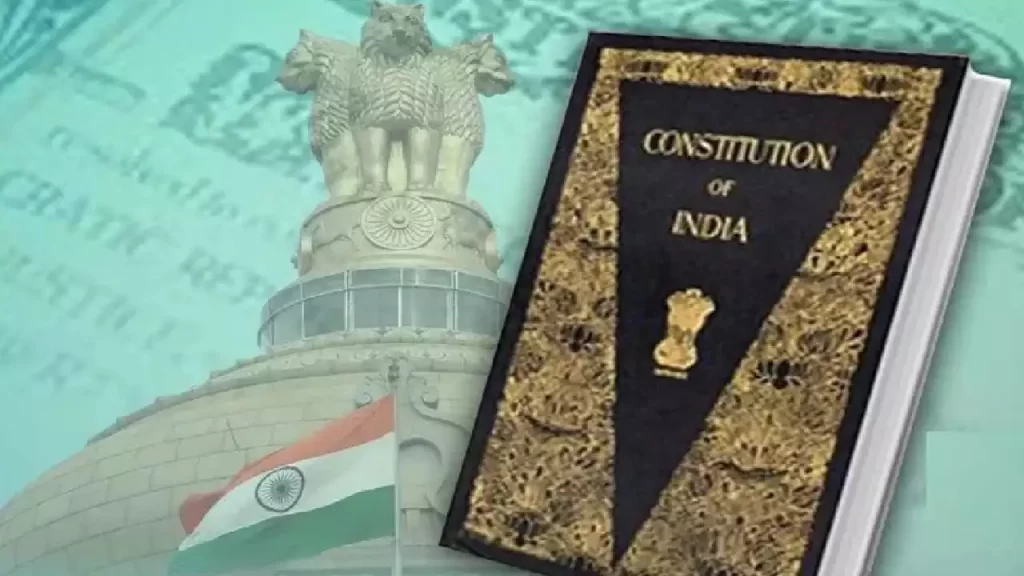
In day 26 Last January, India celebrated “Republic Day”/ “Repubic Day”, date on which its Constitution entered into force, in 26 January 1950, replacing “The Government of India Act”/ “The Government of India Act 1935”, which had been enacted by the British Raj as the foundation document of State. The document entered into force on 26 January 1950. Through it the nation became an autonomous republic..
India had achieved independence in 15 August 1947, after a long and traumatic period of resistance and militancy, which had Mahatma Gandhi at the epicenter of its leadership, along with other great characters in the country's modern history. It was formalized through the “India Independence Act 1947”, enacted by the Parliament of the United Kingdom, which then divided British India into the two new "British Commonwealth Independent Dominions" (later “Community of Nations”): India and Pakistan. Until this moment, the country did not have a permanent constitution; instead, their laws were based on colonial legislation, modified since 1935.
In 29 August 1947, the Drafting Committee in charge of drafting the permanent constitution was created, who had the dr. B. R. Ambedkar as President. This belonged to the Mahar caste, among the lowest in India – a “dalit”, therefore – who were treated as the "untouchables", and suffered intense discrimination. It was for this reason that in his final speech to the Constituent Assembly, in 25 November 1949, Ambedkar warned of the pitfalls of living in society after separation. Here goes part of your speech:
"In day 26 January 1950, we will enter a life of contradictions. In politics we will have equality and in social and economic life we will have inequality.. In politics, we will recognize the principle of a man, a vote, and a vote, a value. In our social and economic life, we will continue, because of our social and economic structure, to deny this principle of a man, a value. Until when will we continue to live this life of contradictions? How long will we continue to deny equality in our social and economic life? If we continue to deny it too long, we will do so by endangering our political democracy. We must eliminate this contradiction as soon as possible., otherwise those who suffer from inequality will break down the structure of political democracy that this Assembly has so painstakingly built”.
Nothing different from what we live today in various parts of the planet…
It is for this reason that the Preamble of the Indian Constitution fundamentally establishes:
"US, THE PEOPLE OF INDIA, having solemnly resolved to constitute India a SOVEREIGN DEMOCRATIC REPUBLIC, SOCIALIST AND SECULAR and assure all its citizens:
JUSTICE, social, economic and political;
FREEDOM OF THOUGHT, expression, belief, faith and worship;
EQUAL status and opportunity; and promote among all of them the
FRATERNITY, ensuring the dignity of the individual and the unity and integrity of the Nation;
AT OUR CONSTITUENT ASSEMBLY this twenty-sixth day of November, 1949, WE ADOPT, WE APPROVE AND OFFER OURSELVES THIS CONSTITUTION”.(*)
Between text and reality permeate great challenges for contemporary India, especially at this time when Hindu nationalism is acquiring a growing role in political and social life.. But the pillar remains, the headlight. It is up to Indian society to make these commandments a reality.. Epic effort...
Text in english:
* (WE, THE PEOPLE OF INDIA, having solemnly resolved to constitute India into a SOVEREIGN, SOCIALIST, SECULAR DEMOCRATIC REPUBLIC and to secure to all its citizens:
JUSTICE, social, economic and political;
LIBERTY of thought, expression, belief, faith and worship;
EQUALITY of status and of opportunity; and to promote among them all
FRATERNITY assuring the dignity of the individual and the unity and integrity of the Nation;
IN OUR CONSTITUENT ASSEMBLY this twenty-sixth day of November, 1949, do HEREBY ADOPT, ENACT AND GIVE TO OURSELVES THIS CONSTITUTION).
